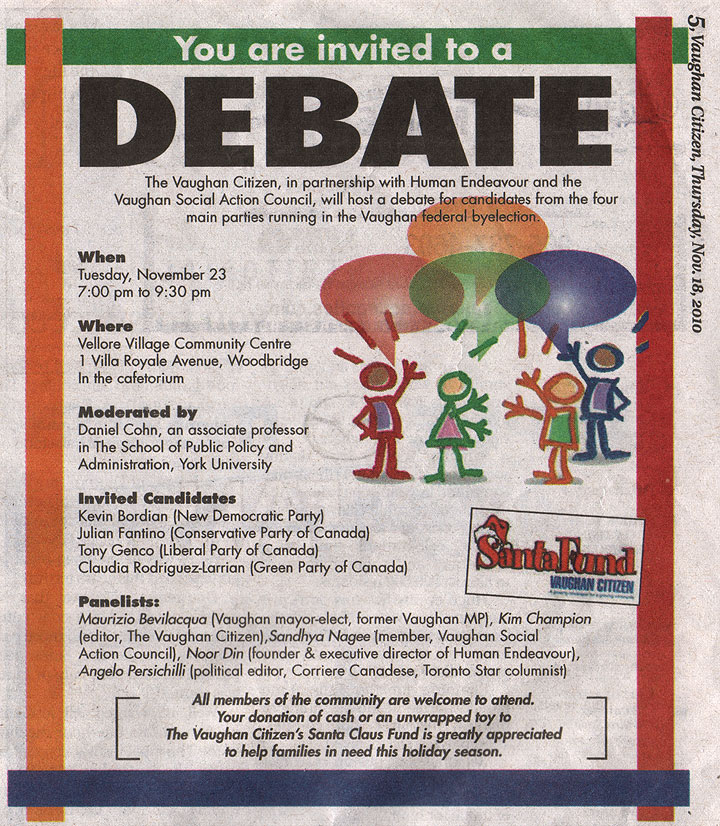The column below appeared in the Markham Economist and Sun opinion page on Thursday, April 29, 2010.
Markham has been one of the fastest growing municipalities in North America and some politicians and residents have decided that this growth and prosperity is somehow detrimental to residents and their way of life. So lobby groups have formed and they have recruited politicians and environmentalists (see below) to force their views on the rest of us. (click to see entire article)
I sent a letter to the editor of the Economist and Sun and it was published (below left) on May 8, 2010. The actual letter as written is clearer below right.

Re:
Markham at crossroads: to sprawl or protect, Apr. 29
I carefully read and re-read the column by David Suzuki and Faisal Moola of the Suzuki Foundation. Nowhere in the piece was there mention of concepts like property rights and private ownership and freedom to dispose of property.
There was a blanket statement in the article that described “an extraordinary new path…..limiting all future growth to further development in areas already built up”. This was followed by:
“This visionary proposal is aimed at protecting the town’s remaining farms, fields and forests, known as the white belt, as a foodbelt that would be out of reach of future development.” Does this mean that those farmers who own this property, in some families for generations, will not be able to sell the property on the open market for a fair price? That is exactly what it means; they are out of luck, too bad for them.
Like many in Markham, my family enjoys locally grown food when it is briefly available, but the bulk of our food, produce and meat come from far off shores and at lower prices. I doubt that local farmers can sustain a living for their efforts why would they? Their chance to escape the farm and reap profits from the sale of their valuable land is about to be thwarted by environmental and political bullies.
What alternatives do Suzuki and our politicians offer? Densification, the creation of urban high-rise ghettos and massive townhouse complexes “preventing urban sprawl onto agricultural lands….using the principles of smart growth” a concept that has already been dismissed in large parts of the United States where much better agricultural conditions exist. “Smart growth” is a euphemism for coerced growth. If land use is restricted in Markham, what happens to available property values? Of course property values increase, good for me, maybe good for you but what about our children, will they be able to escape the expensive high-rise ghettos?
Suzuki and Moola offer that “critical ecological services” will be provided if Markham preserves its green spaces. Habitat for wildlife, songbirds, wildflowers and the economically important “flying $50 bills” called bees will have freedom to grow and roam in Markham, but not people. Is it possible that these benefits may still exist in an urban or suburban environment? I think they can, I’m prepared to tell Suzuki and those politicians where to get off. Are you?

















